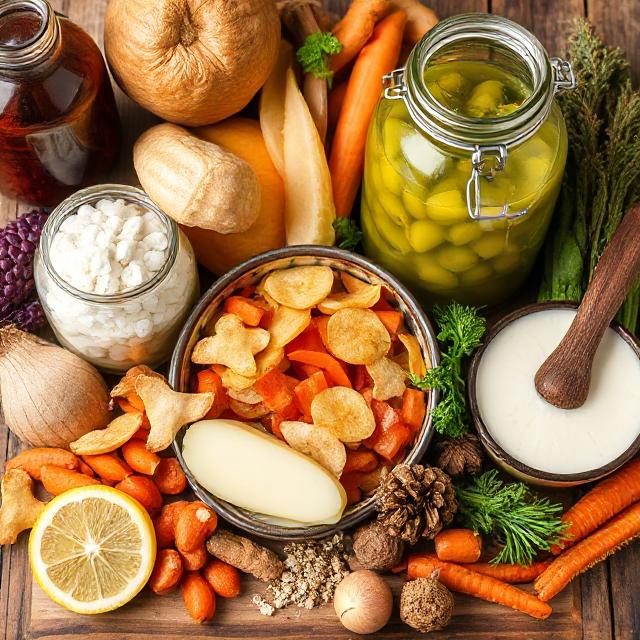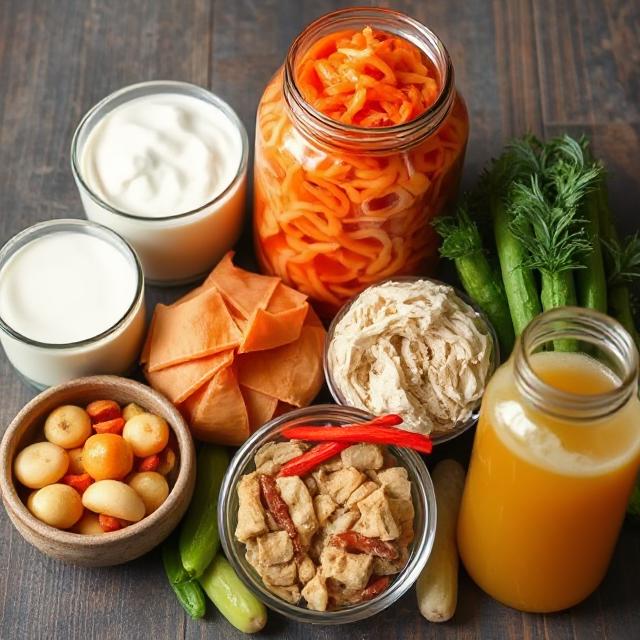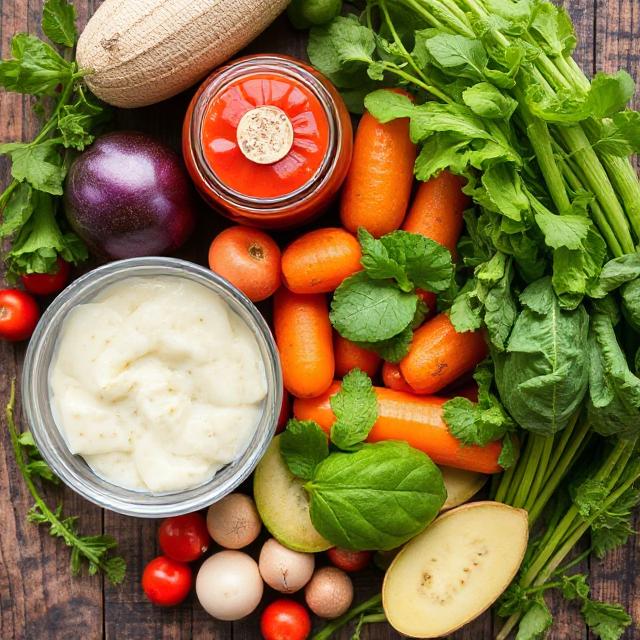Gut health has become a hot topic in recent years — and for good reason. Your gut isn’t just where digestion happens; it’s the foundation of your immune system, mental clarity, and even your skin health. According to Dr. Barbara O’Neill, a renowned naturopath and health educator, fermented foods play a key role in maintaining a healthy gut microbiome. Let’s explore how fermented foods naturally boost gut health, with practical insights and a focus on their benefits in everyday life.

What Is Meant by Fermented Food?
Fermented foods are natural foods transformed by the action of bacteria, yeast, or both. This process preserves the food and enriches it with beneficial bacteria, also known as probiotics. Examples include yogurt, kefir, sauerkraut, kimchi, miso, tempeh, and traditional pickles. These foods are fermented by lactic acid bacteria or yeast, which help break down sugars and starches and produce compounds that support gut health.
Why Are Fermented Foods Good for Gut Health?
The live cultures in fermented foods help replenish and balance the microbiota in the gastrointestinal tract. Dr. Barbara O’Neill highlights that probiotics from fermented products can aid in:
- Reducing inflammation
- Improving digestion and nutrient absorption
- Enhancing immunity
- Restoring gut flora after antibiotic use
Fermented foods also lower the pH in the gut, creating an environment where harmful bacteria struggle to survive. This natural mechanism supports your body’s defense system and helps with conditions like indigestion, constipation, and even mental fog.
List of Fermented Foods for Gut Health
Whether you live in Pakistan, India, or the UK, here’s a handy list of fermented foods beneficial for your gut:
- Yogurt (Dahi) – Common in Pakistan and India, packed with live cultures.
- Kefir – A tangy, drinkable yogurt that contains up to 30 strains of beneficial bacteria.
- Sauerkraut – Fermented cabbage rich in fiber and probiotics.
- Kimchi – A spicy Korean side dish that improves gut flora.
- Miso & Tempeh – Soy-based fermented foods used in Japanese cuisine.
- Fermented pickles – Unlike vinegar-pickled ones, traditional pickles are rich in probiotics.
- Kombucha – A fizzy fermented tea loaded with beneficial yeasts and bacteria.
For those looking for low sugar fermented foods, options like kimchi, sauerkraut, and homemade pickles are ideal.

Fermented Foods in Pakistan: Local Gut-Friendly Options
Pakistan is home to some great naturally fermented foods. Dahi (yogurt) is the most commonly consumed probiotic food. Traditional pickles like achar made without vinegar and aged in brine or mustard oil are also excellent for gut health. Kanji, a fermented carrot drink consumed in winter, is another local gem.
These foods are fermented by natural bacteria and yeast, making them affordable, accessible, and rich in gut-boosting benefits.
How to Make Fermented Foods at Home
Fermenting food is easier than you might think. Here’s how to make a basic fermented vegetable:
- Chop vegetables (like cabbage or carrots).
- Add salt (non-iodized) and massage until they release water.
- Pack tightly into a clean jar and submerge in its own juices.
- Leave at room temperature for 5–10 days.
- Store in the fridge and consume within weeks.

Making fermented food at home ensures a fresh, live probiotic source without preservatives or high sugar content.
Final Thoughts
Fermented foods are not just a culinary trend — they’re a time-tested natural remedy for improving gut health. They replenish beneficial bacteria, enhance digestion, and offer immunity support. According to Dr. Barbara O’Neill, including even a small amount daily can make a big difference.
If you’re looking to improve your digestion, enhance your mood, or even get clearer skin, adding fermented foods to your diet might be the natural solution you’ve been searching for.




Great post. I am facing a couple of these problems.